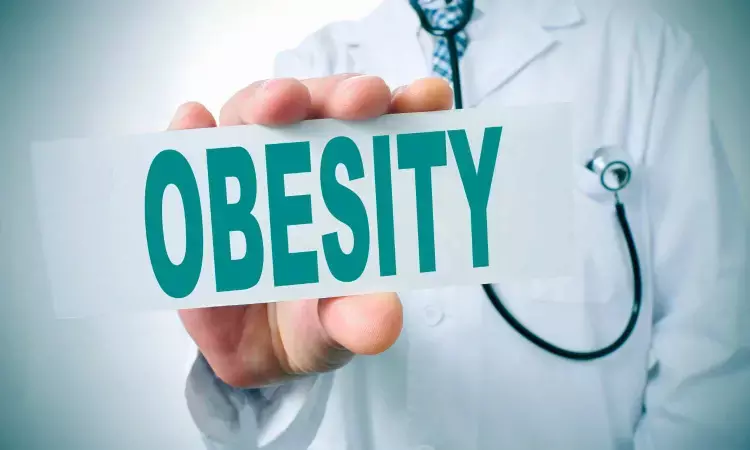- Home
- Medical news & Guidelines
- Anesthesiology
- Cardiology and CTVS
- Critical Care
- Dentistry
- Dermatology
- Diabetes and Endocrinology
- ENT
- Gastroenterology
- Medicine
- Nephrology
- Neurology
- Obstretics-Gynaecology
- Oncology
- Ophthalmology
- Orthopaedics
- Pediatrics-Neonatology
- Psychiatry
- Pulmonology
- Radiology
- Surgery
- Urology
- Laboratory Medicine
- Diet
- Nursing
- Paramedical
- Physiotherapy
- Health news
- Fact Check
- Bone Health Fact Check
- Brain Health Fact Check
- Cancer Related Fact Check
- Child Care Fact Check
- Dental and oral health fact check
- Diabetes and metabolic health fact check
- Diet and Nutrition Fact Check
- Eye and ENT Care Fact Check
- Fitness fact check
- Gut health fact check
- Heart health fact check
- Kidney health fact check
- Medical education fact check
- Men's health fact check
- Respiratory fact check
- Skin and hair care fact check
- Vaccine and Immunization fact check
- Women's health fact check
- AYUSH
- State News
- Andaman and Nicobar Islands
- Andhra Pradesh
- Arunachal Pradesh
- Assam
- Bihar
- Chandigarh
- Chattisgarh
- Dadra and Nagar Haveli
- Daman and Diu
- Delhi
- Goa
- Gujarat
- Haryana
- Himachal Pradesh
- Jammu & Kashmir
- Jharkhand
- Karnataka
- Kerala
- Ladakh
- Lakshadweep
- Madhya Pradesh
- Maharashtra
- Manipur
- Meghalaya
- Mizoram
- Nagaland
- Odisha
- Puducherry
- Punjab
- Rajasthan
- Sikkim
- Tamil Nadu
- Telangana
- Tripura
- Uttar Pradesh
- Uttrakhand
- West Bengal
- Medical Education
- Industry
Both Healthy and unhealthy forms of obesity raise risk of obesity-related cancers

Delhi: Both the metabolically healthy and unhealthy 'forms' of obesity are tied to an increased risk of various obesity-related cancers; the relationship was stronger in metabolically unhealthy obesity, states a recent study by Dr Ming Sun, Lund University, Malmö, Sweden and colleagues.
The study will be presented at the European Congress on Obesity, to be held in Dublin, Ireland, from 17-20 May.
Studies of how cancer is related to obesity with metabolic complications (metabolically unhealthy obesity) or without such complications (healthy obesity) are scarce.
In this new research, the authors investigated body mass index (BMI, normal weight/overweight/obesity) jointly and in interaction with metabolic health status in relation to obesity-related cancer risk (n=23,630) among 797,193 European individuals.*
A metabolic score comprising blood pressure, plasma glucose and triglycerides (blood fats) was used to define metabolically healthy and unhealthy status, and statistical modelling was used to estimate any relationship.
The participants thus were put into six different categories-metabolically unhealthy obesity (6.8% of participants); metabolically healthy obesity (3.4%), metabolically unhealthy overweight (15.4%), metabolically health overweight (19.8%), metabolically unhealthy normal weight (12.5%), metabolically healthy normal weight (42.0%).
Metabolically unhealthy obesity, was, compared to metabolically healthy normal weight, associated with an increased relative risk of any obesity-related cancer and colon, rectal, pancreas, endometrial, liver, gallbladder, and renal cell cancer, with the highest risk estimates for endometrial, liver, and renal cell cancer (2.5 to 3.0 times increased risk).
In women, compared to metabolically healthy women of normal weight, metabolically unhealthy women with obesity had a 21% increased risk of colon cancer, a 3-times increased risk of endometrial cancer, and a 2.5 times increased risk of kidney cancer. Metabolically healthy women with obesity had a 2.4 times increased risk of endometrial cancer and an 80% increased risk of kidney cancer. However, the relationship with colon cancer was no longer statistically significant.
In men, compared to metabolically healthy men of normal weight, metabolically unhealthy men with obesity had a 2.6 times increased risk of kidney cancer, an 85% increased risk of colon cancer, and a 32% increased risk of both pancreatic and rectal cancer. Metabolically healthy men with obesity had a 67% increased risk of kidney cancer, and a 42% increased risk of colon cancer, but the relationship with both pancreatic cancer and rectal cancer was no longer statistically significant. In an unusual finding, metabolically healthy and unhealthy men with overweight (not obesity) had around a 50% increased risk of the blood cancer multiple myeloma-yet neither metabolically healthy or unhealthy men with obesity had an increased risk of this cancer.
The authors say that, among men only, the data suggest that obesity jointly with metabolic complications increases the risk of these obesity-related cancers more than expected from the sum of either risk factor individually. They say: “This has important public health implications, suggesting that a significant number of cancer cases could potentially be prevented by targeting the co-existence of metabolic problems and obesity, particularly for obesity-related cancers among men.”
The authors conclude: “This study highlights that the type of metabolic obesity phenotype is important when assessing obesity-related cancer risk. In general, being metabolically unhealthy further increased the obesity-related cancer risk, suggesting that obesity and metabolic conditions are useful targets for the prevention for obesity-related cancers.”
Reference:
Study shows how both metabolically healthy and unhealthy ‘forms’ of obesity increase risk of various obesity-related cancers, European Association for the Study of Obesity, Meeting, European Congress on Obesity (ECO2023).
Dr Kamal Kant Kohli-MBBS, DTCD- a chest specialist with more than 30 years of practice and a flair for writing clinical articles, Dr Kamal Kant Kohli joined Medical Dialogues as a Chief Editor of Medical News. Besides writing articles, as an editor, he proofreads and verifies all the medical content published on Medical Dialogues including those coming from journals, studies,medical conferences,guidelines etc. Email: drkohli@medicaldialogues.in. Contact no. 011-43720751


